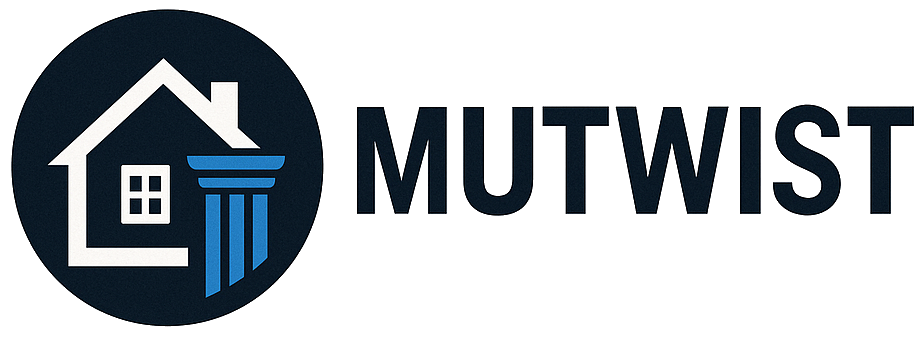You don’t need millions to invest in real estate! Here’s how to start small:
- REITs (Real Estate Investment Trusts)
Buy shares in publicly traded REITs (e.g., VNQ, O)—earn dividends without owning property.
- Crowdfunding Platforms
Fundrise, RealtyMogul let you invest in properties with as little as $500.
- House Hacking
Rent out spare rooms (Airbnb) or buy a duplex (live in one unit, rent the other).
- Wholesaling
Find off-market deals, assign contracts to cash buyers for a fee.
Key Tip: Research local markets & leverage low-interest financing.
Real estate investing has long been celebrated as a powerful way to build wealth and generate passive income. However, many beginners believe that entering the real estate market requires a substantial amount of capital — a misconception that can prevent them from taking the first step. The good news is that you don’t need a fortune to start investing in real estate. With the right strategies, mindset, and resources, even those with limited funds can begin their journey in real estate investing.
Why Invest in Real Estate?
Real estate offers several unique benefits that make it an attractive investment option:
Steady Cash Flow: Rental properties can provide a regular income stream.
Appreciation: Properties tend to increase in value over time.
Tax Advantages: Investors can benefit from deductions, depreciation, and tax incentives.
Leverage: You can use financing to control larger assets with smaller upfront capital.
Portfolio Diversification: Real estate can balance risk in an investment portfolio.
Common Myths About Needing Big Money to Start
“You must have a large down payment.”
While traditional mortgages require 20% down, there are other financing options and investment paths that need less or no upfront cash.
“Real estate is only for the wealthy.”
With innovation in investment models and financing, beginners with modest means can enter the market.
“You need to buy a whole property.”
Today’s investors can buy shares of real estate through crowdfunding platforms or REITs.
How to Start Real Estate Investing with Little Money
- House Hacking
House hacking involves buying a multi-unit property (like a duplex or triplex), living in one unit, and renting out the others. The rental income from tenants can cover your mortgage and expenses, effectively reducing your living costs.
Benefits: Minimal out-of-pocket costs; experience as a landlord.
Requirements: Qualify for a mortgage; willingness to live with tenants.
- Real Estate Investment Trusts (REITs)
REITs allow you to invest in real estate portfolios managed by professionals without owning physical property. They trade like stocks, making them accessible with small amounts of money.
Benefits: Liquidity, diversification, low entry point.
Considerations: Limited control over specific assets; market volatility.
- Real Estate Crowdfunding
Platforms like Fundrise, RealtyMogul, or CrowdStreet pool funds from many investors to buy or develop properties. You can start with a few hundred to a few thousand dollars.
Benefits: Access to commercial real estate; passive income.
Considerations: Investment minimums vary; some platforms have longer lock-in periods.
- Partner with Other Investors
Pooling resources with friends, family, or investment groups can enable you to participate in deals that would otherwise be out of reach.
Benefits: Shared risk and capital.
Considerations: Requires trust, clear agreements, and communication.
- Leverage Seller Financing or Rent-to-Own Deals
Sometimes sellers offer financing, allowing buyers to avoid traditional mortgage hurdles. Rent-to-own arrangements can also help accumulate equity with smaller upfront costs.
Benefits: Flexibility in financing.
Considerations: Terms vary; due diligence is critical.
- Start Small: Buy a Single-Family Home
Begin with smaller, affordable properties in emerging or stable neighborhoods. Even modest homes can generate rental income and appreciate over time.
Benefits: Easier management.
Considerations: Location and property condition matter.
Financing Tips for Beginners
FHA Loans: Government-backed loans that allow down payments as low as 3.5% for owner-occupied properties.
VA Loans: For veterans, with zero down payment options.
Hard Money Loans: Short-term loans from private lenders, useful for fix-and-flip projects.
Home Equity Line of Credit (HELOC): Use existing home equity to finance investments.
Credit Unions and Local Banks: May offer competitive financing options.
Key Steps to Get Started
Educate Yourself: Read books, attend webinars, listen to podcasts, and join real estate investing groups.
Define Your Goals: Decide whether you want income, appreciation, or both.
Analyze Markets: Research locations with strong rental demand and growth potential.
Build Your Team: Connect with real estate agents, lenders, property managers, and contractors.
Start Small and Scale: Begin with manageable projects and gradually expand as you gain experience.
Understand Risks: Real estate involves market risks, vacancies, maintenance costs, and legal responsibilities.
Conclusion
Real estate investing is not exclusive to the wealthy. With creativity, education, and determination, beginners can start building wealth through real estate—even with little money. By leveraging strategies like house hacking, REITs, crowdfunding, and alternative financing, you can take your first steps into property investment, grow your portfolio, and secure your financial future.
Remember, the journey of real estate investing is a marathon, not a sprint. Start small, learn continuously, and stay patient. Your future self will thank you.




